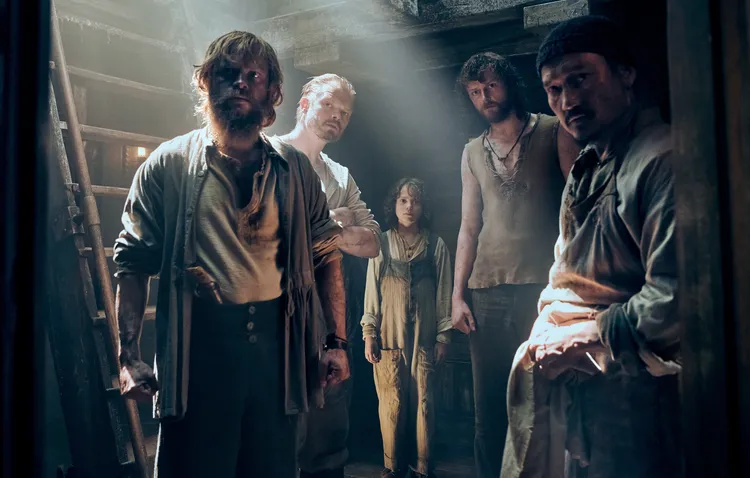The chilling tale of Bram Stoker’s “Dracula” finds a new vessel in “The Last Voyage of the Demeter,” a horror movie set on a London-bound cargo ship unwittingly ferrying an insatiable vampire. It’s an ominous journey where the safety of daylight succumbs to the bloodthirsty terror of the night.

As the sun sets, the safety of the day gives way to the terror of a vampire stowaway, who emerges from a makeshift cargo coffin to feast on the crew members. The predictability of this circadian rhythm begs the question: why doesn’t the crew mount an attack during daylight hours? The film’s noble hero, Dr. Clemens, portrayed convincingly by Corey Hawkins, could certainly have benefited from such a strategy.

The narrative takes flight with Dr. Clemens, a British physician, pleading to join the crew of the Demeter under the command of Captain Eliot (Liam Cunningham). Despite being the only educated man onboard, Clemens proves his mettle as a deckhand, earning the respect of the seasoned first mate Wojchek (David Dastmalchian) and the naive young Toby (Woody Norman), the captain’s grandson.
Directed by André Ovredal, “The Last Voyage” eschews in-depth character development, plunging swiftly into a nightmarish sequence of events. Foreboding signs and eerie sounds quickly yield to a series of harrowing encounters as Dracula eliminates the crew one by one.
The screenplay does attempt to incorporate modern themes, presenting a token feminist moment — the narrative’s lone female character is shown adeptly handling a rifle — and a discourse on racism. However, these attempts to contemporize the century-old tale are as futile as the doomed crew’s efforts to escape their foreordained fates.
In the end, “The Last Voyage of the Demeter” offers a chilling interpretation of a chapter from Bram Stoker’s “Dracula.” It’s a film that reimagines a familiar tale, forcing us to ask ourselves: would we have the courage to face the vampire in the daylight?

